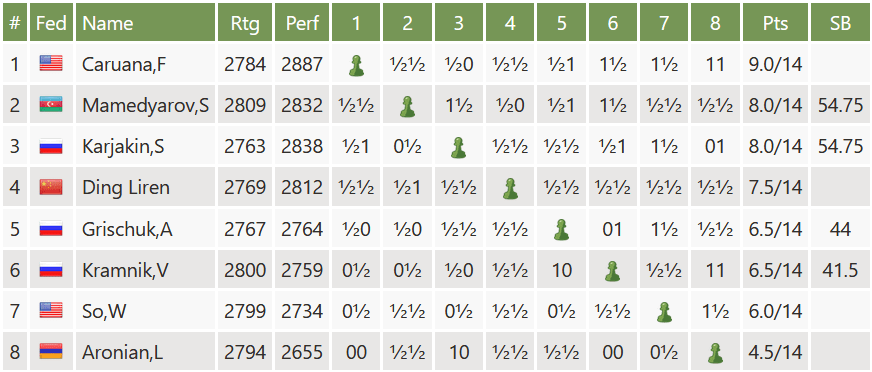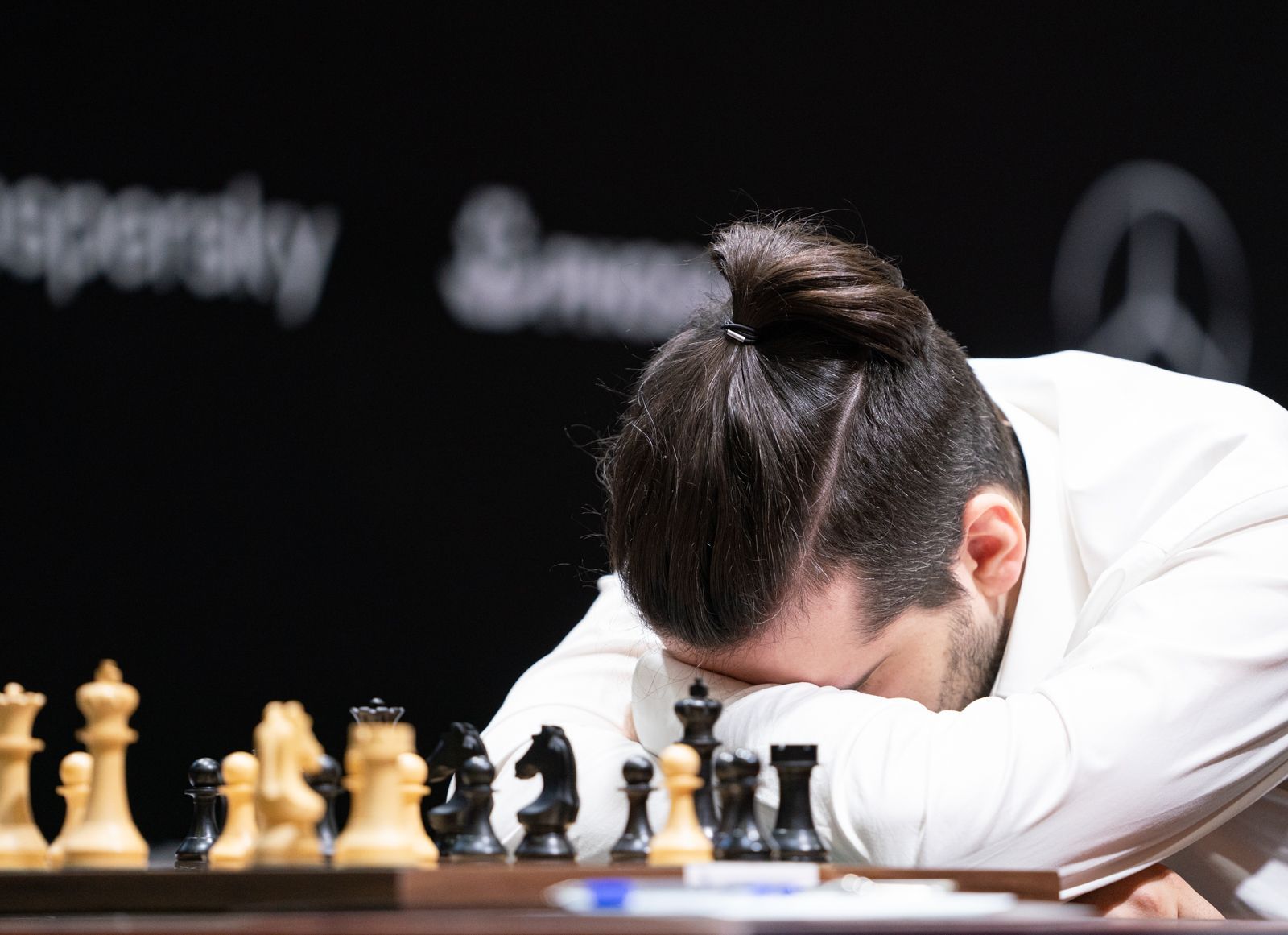
Round-Robin Tournament
There are many ways to determine who is the best in a group of chess players. Round-robin tournaments are one of the fairest ways to do so. Find out what happens in this type of tournament and why many people like this format so much.
- What Is A Round-Robin Tournament In Chess?
- What Are The Advantages Of A Round-Robin Tournament?
- What Are The Disadvantages Of A Round-Robin Tournament?
- Conclusion
What Is A Round-Robin Tournament In Chess?
In chess and other sports, round-robin tournaments require every player or team to face all the other players or teams at least once. The winner or winners are those who have the best overall performance during the entire tournament.

The most well-known round-robin tournament in chess is the Candidates Tournament. Other popular ones are the U.S. Chess Championship, the Russian Chess Championship, the Sinquefield Cup.
What Are The Advantages Of A Round-Robin Tournament?
Former world champion GM Jose Raul Capablanca once said, "A good player is always lucky." Although Capablanca does have a point in downplaying the role of luck in chess, a player's good or bad fortune has always been a part of any sport, including chess.
A good player is always lucky.
— GM Jose Raul Capablanca
Perhaps the most significant advantage of round-robin tournaments is that it minimizes the impact of luck on the event's final result. Every participant faces the same set of opponents, eliminating competition inequalities that are common in other systems. Furthermore, a single underperformance never disqualifies a stronger player as it may in knockout events.
Besides, round-robin chess tournaments are an effective way of ranking every player participating in the event. Unlike knockout events where players leave a tournament after losing, even those who lose a match must keep playing. Thus, every participant plays the same amount of games, which allows a fair comparison of all final scores.

What Are The Disadvantages Of A Round-Robin Tournament?
Although theoretically fairer than other systems, round-robin is not a perfect type of tournament for a few reasons.
One of its disadvantages is that it may take too much time to end. Since every player must face everyone else, a large number of participants also means a lengthier event.
Another problem (that stems from the previous one) is that long tournaments can lead to player fatigue, which may decrease the quality of the games. On top of that, a player can face the strongest contenders in succession, which can be more tiring and elevate the event's "difficulty"—which, to some extent, defeats the purpose of making everyone play against each other.

Some also consider this format to be "less exciting" than knockouts because a player can mathematically guarantee victory before an event is over. Games between players who no longer have any chance to win can also cause a lack of excitement among chess fans and players alike. Read this article by GM Gregory Serper about round-robin tournaments for his opinion on this format.
Conclusion
You now know what round-robin tournaments are as well as their advantages and disadvantages. Head over to our News page to read about current chess tournaments.






